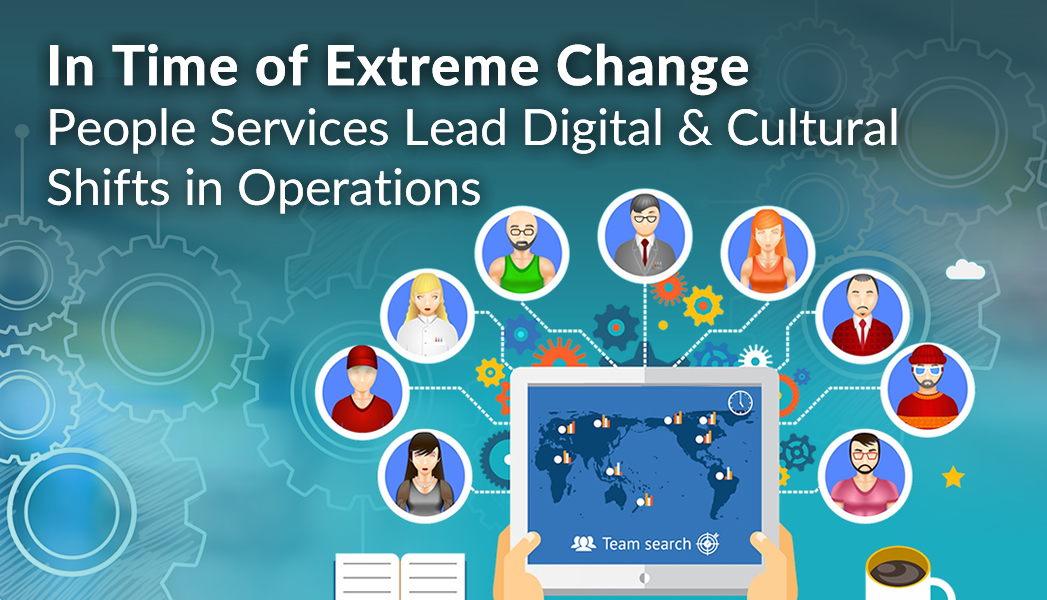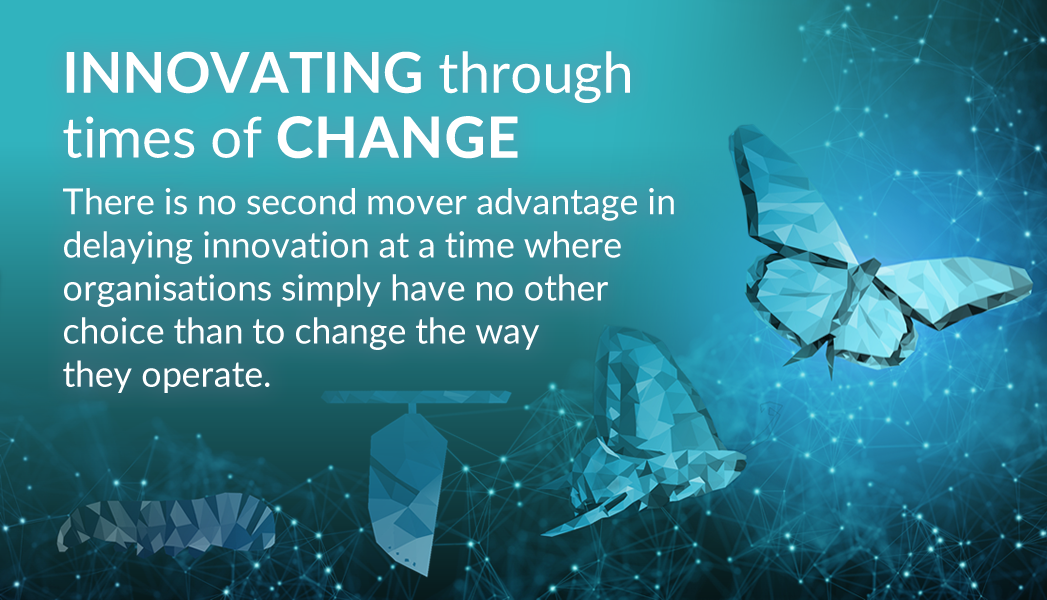
There has never been a stronger, healthier dependence on supply chains as they exist in the interconnected world, given that supply chains are more vulnerable, complex and data-driven than ever.
The recent COVID-19 crisis revealed the weakness of sourcing, logistical and production networks, and the change to smarter and more resilient systems will be a high priority. To add to this, volatile trade relations, disruptions due to climatic forces, and the fast changes in customer demands imply that a business cannot allow its inefficiency or delay in making a decision.
Artificial Intelligence (AI) has emerged as a game-changer in addressing these challenges. Predicting patterns, automating repetitive decisions, and reasoning on data much faster than humans, AI augments speed and accuracy throughout supply chains.
AI does not achieve this effect alone; it requires a platform capable of processing vast amounts of data, accessing multiple systems, and operating on an international scale. That is where Oracle Cloud has an outstanding role.
Oracle has long been a player in the world of enterprise resource planning (ERP) and supply chain management products, with a long-standing legacy of strengths related to this M3 trial.
As it has previously sought to embed AI functionalities directly within its Fusion Cloud Supply Chain & Manufacturing (SCM) offering, this represents a confident move into unfamiliar terrains. Combined with Oracle Cloud Infrastructure (OCI), the platform offers a harmonious space where enterprises can unlock efficiencies and mitigate costs, all on the foundation of resiliency.
In this article, we will elaborate on how AI-enabled supply chains drive quantifiable value, how the Oracle Cloud enables organisations to drive these innovations, and why current leaders who adopt AI are setting their organisations on a path to competitive advantage in the coming years.
The Strategic Value of AI in Supply Chains
The applications of AI in supply chain management extend far beyond task automation. It radically alters the way companies respect and react to complexity. Supply chain leaders used to be driven by the past through historical means, using manual forecasting tools. Such techniques often relied on trailing indicators and fixed-point models, and could not effectively handle shocks, such as spikes in demand or port closures.
Adaptability can be added through AI, which processes new data continuously, finds new correlations that cannot be seen by human planners and provides insights in almost real time. These solutions can serve as examples of how machine learning tools deployed by Oracle can utilise years of sales, shipment, and supplier performance data to produce exceptionally accurate demand forecasts. These forecasts are dynamic, hence businesses can optimise production time, acceptably better inventory and eliminate the expensive stock outages or excesses.
A study by IBM IBV and Oxford Economics revealed that organisations investing heavily in AI for supply chains experienced 61% greater revenue growth compared to peers who had not embraced the technology. This statistic underscores the fact that AI is not just about operational savings; it is about long-term growth and resilience.
Oracle Cloud Infrastructure: Fueling AI-First Supply Chains
AI will be as strong as the infrastructure maintaining it. Supply chains generate tremendous volumes of data: tracking of shipments, sensor data, IoT devices, weather status, finances and customer behavioral patterns. And without a cloud backbone, it is almost impossible to capitalise on this data to provide AI insights.
OCI is the high-performance computing power, powerful data storage, and powerful analytics tools required in the transformation of the supply chain through AI. The OCI is a scalable and global system that is not condensed like the conventional on-premises. Business enterprises can ingest and process large amounts of structured and unstructured data, and clean and provide timely inputs to their AI models.
The business case for OCI’s AI-driven scalability is reinforced by recent growth figures. In its fiscal first quarter ending August 2025, Oracle projected a 77% increase in OCI revenue, driven largely by AI demand, up from earlier expectations of 70%. In the same period, Oracle’s remaining performance obligations future contracted cloud revenue soared 359% year-on-year to $455 billion.
Oracle’s AI Agents: From Insight to Action
The introduction of AI agents, a type of preconfigured embedded assistants, that can conduct specific logistics, procurement, and planning tasks, is one of the most exciting developments in the Oracle supply chain suite.
These agents do not remain on dashboard boards and analytics reports. Rather, they deal with the user directly, proposing courses of action, creating summaries, and simplifying the work process. For example:
- An AI agent can automatically create an order confirmation message when a purchase order is placed, saving employees from repetitive drafting.
- Another agent may summarise order changes across hundreds of shipments, providing a single digestible report for managers.
- In logistics, an agent predicts delivery delays, alerts planners, and recommends alternative routes.
These agents are powerful because they are able to maintain an intersection of insight and performance. AI agents provide advice in the situation rather than allowing the employees to interpret data to make decisions on the next step, and shorten the decision latency.
Generative AI and Workflow Automation
Another aspect that Oracle has incorporated into its supply chain is generative AI. Where predictive AI is analysing what is most likely to occur, generative AI uses existing data to create a new item, whether text, a summary, or even a report.
This is reflected in time-saving activities in the supply chains, such as:
- Drafting order acknowledgements or shipping updates.
- Summarising negotiation outcomes with suppliers.
- Generating custom reports tailored to managers’ requirements.
Oracle began rolling out generative AI features in 2024 across its finance and supply chain applications, offering them to customers at no additional cost. This pricing strategy not only democratises AI but also accelerates adoption by removing financial barriers.
Beyond efficiency, generative AI enhances collaboration. Supply chain teams often operate across time zones and departments. Instead of wading through raw datasets or lengthy reports, employees receive concise summaries, freeing them to focus on negotiation, decision-making, and customer relationships.
Toward Agentic AI: Autonomous and Proactive Supply Chains
While today’s AI agents provide recommendations, the future lies in agentic AI systems capable of making multi-step, autonomous decisions without constant human oversight. Oracle is already laying the groundwork for this transition.
For instance, an agentic AI could detect a delayed shipment in Asia, automatically trigger reallocation of inventory from Europe, notify impacted customers, and adjust production schedules, all without manual intervention.
The strategic importance is reflected in research from IBM IBV
- 62% of supply chain leaders believe embedded AI agents accelerate decision-making.
- 76% of Chief Supply Chain Officers expect AI to significantly improve process efficiency by automating repetitive, high-impact tasks.
- By 2026, 70% of executives anticipate employees will rely on AI agents to explore analytics deeply and enable real-time optimisation.
The Risk of Collaboration Paradox, and Oracle’s Path Forward
While the promise of agentic AI is enormous, it is not without risks. Oracle’s approach mitigates these risks through three mechanisms:
- Strong Data Governance: Ensuring clean, consistent, and validated inputs.
- Human Oversight: Embedding checkpoints where humans approve high-impact decisions.
- Cross-System Integration: Preventing siloed AI decisions by synchronising across procurement, logistics, and finance.
Real-World Impact: Efficiency, Resilience, Sustainability
Theoretical benefits mean little without real-world results. Oracle’s AI-powered SCM delivers impact in several measurable ways:
1. Efficiency
Businesses optimise shipping routes, reduce customs delays, and shorten lead times. Order prioritisation ensures critical shipments move faster, improving customer satisfaction.
2. Resilience
Predictive AI warns of disruptions, weather events, port closures, or supplier delays, giving businesses time to adjust.
3. Sustainability
AI models reduce fuel consumption by optimising transport routes and minimising waste through better demand forecasts.
4. Collaboration
Generative AI tools accelerate communications across geographies, producing reports, summaries, and updates without manual effort.
5. Cost Savings
Automation reduces human error, lowers labour intensity, and prevents revenue loss from inefficiencies.
Blueprint for Adoption: Strategy, Governance, and People
Embracing Oracle’s AI-powered supply chain is not just a technology upgrade; it requires organisational strategy and cultural alignment.
Key steps include:
1. Defining Objectives
Identify whether the goal is demand forecasting, risk mitigation, sustainability, or customer service improvement.
2. Ensuring Data Integrity
Clean, well-structured data underpins all successful AI adoption. Oracle’s data management tools simplify this step.
3. Starting with Pilots
Launch focused AI projects, like automated order confirmations, before scaling to complex, cross-functional workflows.
4. Building Cross-Functional Teams
AI success requires collaboration between supply chain experts, IT leaders, and data scientists.
5. Embedding Human Oversight
Ensure managers remain in control of strategic decisions while delegating routine tasks to AI.
6. Scaling with Oracle Cloud
Use OCI’s elasticity to expand successful pilots quickly without infrastructure constraints.
Conclusion
AI is defining the future of supply chains, and Oracle Cloud is leading in this change. Embedded AI agents, generative automation, resilient cloud infrastructure, and partnerships that expand its ecosystem enable Oracle to enable businesses to migrate out of reactive management into autonomous and proactive operations.
In a world where uncertainty is the only constant, AI-powered supply chains unlock resilience, agility, and sustainability. Oracle Cloud offers not just technology but a blueprint for reinvention, helping businesses thrive in today’s challenges while preparing for tomorrow’s possibilities. To know more, explore our innovative Oracle solutions or contact us directly.
Read More: AI-Powered Supply Chains: Unlocking Value with Oracle Cloud









